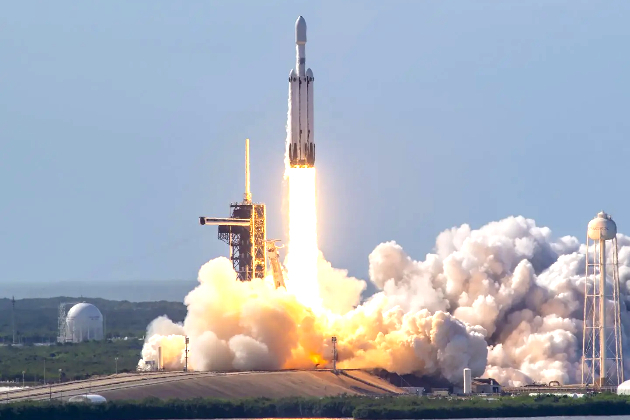Move FM Global News

NASA opens moon contract to rivals amid SpaceX Starship setbacks
Oct 24, 2025WASHINGTON, D.C.: NASA said it will reopen bidding for its flagship moon lander contract after delays in Elon Musk’s SpaceX Starship program, a move that could give Jeff Bezos’ Blue Origin and other rivals a chance to secure a high-profile mission to return astronauts to the lunar surface for the first time in over 50 years.
“I’m in the process of opening that contract up. I think we’ll see companies like Blue get involved, and maybe others,” said acting NASA chief Sean Duffy, who also serves as U.S. Transportation Secretary, in an interview with Fox News.
The decision follows mounting pressure inside NASA to accelerate its Artemis lunar program amid growing concerns that China could beat the U.S. to the moon by 2030. It marks a significant strategic shift just two years before the scheduled 2027 landing, with Blue Origin widely expected to compete. Lockheed Martin has also signaled plans to lead a consortium for a bid.
SpaceX was awarded the US$4.4 billion Artemis 3 contract in 2021, but NASA advisers now warn the company is years behind schedule, citing competing priorities such as Starlink satellite launches and Mars development work.
“They do remarkable things, but they’re behind schedule,” Duffy said of SpaceX, adding that President Donald Trump wants the mission completed before his term ends in January 2029.
The role of a starship is central to Artemis 3, which aims to land the first humans on the moon since Apollo 17 in 1972. However, persistent setbacks have prompted NASA to widen the field, seeking new bidders for what could be one of the agency’s most visible missions this decade.
SpaceX CEO Elon Musk dismissed the move, writing on X (formerly Twitter): “SpaceX is moving like lightning compared to the rest of the space industry. Moreover, Starship will end up doing the whole Moon mission. Mark my words.”
Blue Origin, meanwhile, has been quietly developing its Blue Moon lander in Florida under a separate $3 billion contract awarded in 2023 for later Artemis missions. The company had protested NASA’s 2021 decision to give SpaceX the sole award and lobbied for a dual-source approach — one that Duffy’s remarks now appear to support.
Pressed for details, a NASA spokesperson said the agency has asked SpaceX and Blue Origin to submit accelerated moon landing plans by October 29, adding that proposals from “the entire commercial space industry” would also be invited to increase the cadence of lunar missions.
Lockheed Martin executive Bob Behnken, a former NASA astronaut, confirmed the company was “conducting significant technical and programmatic analysis” with industry partners on potential lunar landers.
NASA’s multibillion-dollar Artemis program aims to establish a long-term human presence on the moon. Artemis 2, a 10-day crewed flyby involving systems from Boeing, Northrop Grumman, and Lockheed Martin, is on track for April 2026 — potentially earlier in February.


